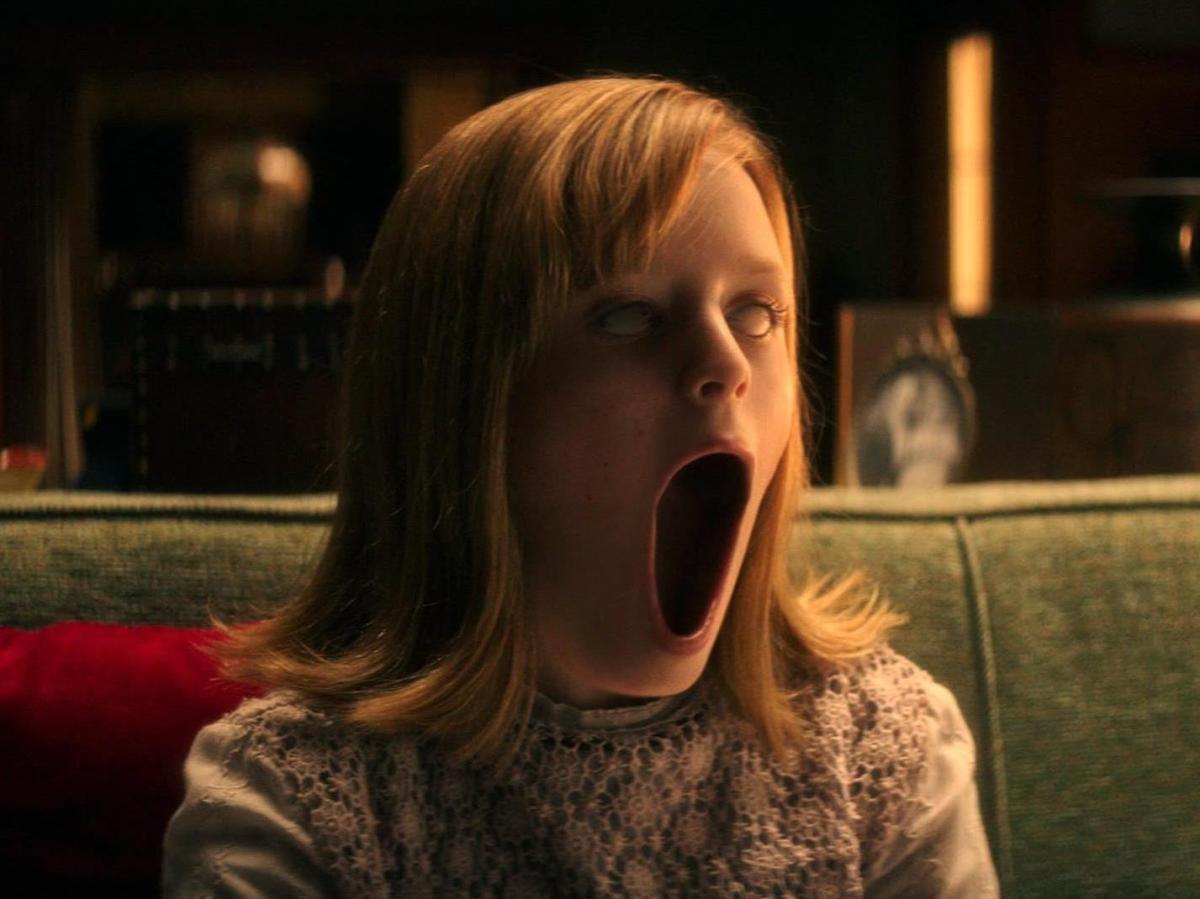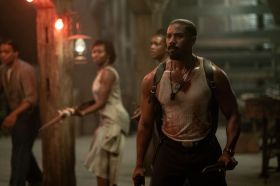Making ends meet by hosting feigned séances, the Zanders yearn for better days gone by. The year is 1967, and the place is suburban Los Angeles; however both have lost their allure for Alice (Elizabeth Reaser, Hello, My Name Is Doris) and her daughters Lina (Annalise Basso, Captain Fantastic) and Doris (Lulu Wilson, TV’s The Millers) after a tragic loss. Times are tough, leaving the trio little choice but to use their fake medium act as a way of making money to stay in the house they’ve made such fond memories within. Alice also sees their line of work as a way of assisting others to find closure and comfort with the past; here, everyone’s looking backwards.
In Ouija: Origin of Evil, that also includes writer/director/editor Mike Flanagan (Before I Wake). He’s not only crafting a film based on the board game that was popular around the time his movie is set — he’s also making a prequel to 2014’s contemporary horror effort, Ouija. And, in the process, he’s overtly nodding to a time in which frights were more frequent in cinemas. Flanagan isn’t the only filmmaker treading this path of late; indeed, taking the Ouija series in this direction clearly owes much to the success of The Conjuring, its spinoff and sequel. But, in doing so, he entertains, incites scares as well as contemplation, and makes an imprint.
That throwback air manifests in many ways: in the chosen time period, and the costuming and staging it takes to recreate it; in the movie’s mood, aping the unease so prominent in horror films of that era; in toying with deeper notions of inherited pain and the trouble of moving on from previous atrocities; and in visuals that even recreate reel change marks for faux authenticity. Crucially, though, the act of peering back infuses every element of Flanagan’s co-written script with regular collaborator Jeff Howard (Oculus), including the otherworldly forces that start using nine-year-old Doris as a conduit after Alice buys the titular game as a new prop.
Accordingly, a feature that’s otherwise generic remains as such, but it also sticks to the template for a purpose and finds a way to offer intrigue within those confines. Guessing just how the plot will unfold isn’t difficult, with the film happily playing upon this fact. Stressing the many echoes of the past, on-screen and -off, almost proves more effective when the audience can predict each move in advance. Yes, viewers will be able to foresee Doris’ strange antics as she falls under the influence of malevolent spirits, Alice’s need to believe despite each sinister development, and Lina’s teenage cynicism — and yet in grounding the reasoning for their behaviour in well-thought-out ties to the past, the movie is given more room to linger on its themes, and subsequently becomes more potent.
It helps that Flanagan has also fleshed out his by-the-numbers narrative not just with a ruminative basis, but with solid casting and creative choices. Wilson joins the ranks of impressive child acting in horror with a transformative turn that ensures that her complete character arc hits home, while Reaser, Basso and Henry Thomas (Big Sur) — the latter as the local school priest and principal — make the most of their more standard roles. Indeed, their efforts suit a feature that visibly toils to feel the retro part, and, through Michael Fimognari’s (The Lazarus Effect) probing, poised cinematography, The Newton Brothers’ (Hush) evocative score and Flanagan’s own finely timed editing, does. In short, as a 99-minute advertisement for a decades-old board game, Ouija: Origin of Evil exceeds expectation; as an improvement on formulaic horror, it succeeds as well.
Rating: 3 stars out of 5
Ouija: Origin of Evil
Director: Mike Flanagan
USA, 2016, 99 mins
Release date: October 20
Distributor: Universal
Rated: M
Actors:
Director:
Format:
Country:
Release:





